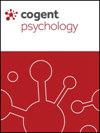Living with Paediatric acute-onset neuropsychiatric syndrome (PANS) – a qualitative study of Children’s experiences in Sweden
IF 1.6
Q2 PSYCHOLOGY, MULTIDISCIPLINARY
引用次数: 0
Abstract
Paediatric Acute-onset Neuropsychiatric Syndrome (PANS) is a relatively new diagnosis, characterized by an abrupt and dramatic onset of obsessive-compulsive disorder, together with neuropsychiatric symptoms. The study aimed to understand the experience of living with PANS from the perspective of children with the diagnosis. The study employed semi-structured interviews with nine children, aged 10–18 years old, with a diagnosis of PANS. An inductive qualitative content analysis approach was used as a guide for analysis of data. The analysis identified three main categories: (1) “Suffering” reflects the aversive emotional, cognitive, and physical experiences of PANS, and its negative consequences on life; (2) “Powerlessness” reflects a lack of control, difficulties involved with predicting and managing the symptoms, not having words to describe one’s needs, and experiencing a lack of understanding from healthcare providers; and (3) “Being encouraged” entails experiences of finding support and encouragement by receiving flexible treatments, adjusted to the person one is, and having someone who does not give up. The conclusions are that PANS has major negative consequences for the children’s well-being, and they experience limited possibilities to manage the symptoms. Flexible and personally adjusted treatments, and caregivers who are a stable source of support, are empowering.与儿童急性发作神经精神综合征(PANS)一起生活——瑞典儿童经历的定性研究
小儿急性发作神经精神综合征(PANS)是一种相对较新的诊断,其特征是突然和戏剧性的强迫症发作,同时伴有神经精神症状。本研究旨在从诊断为pan的儿童的角度了解与pan一起生活的经历。本研究采用半结构化访谈的方式,对9名年龄在10-18岁、诊断为pan的儿童进行访谈。采用归纳定性内容分析方法作为数据分析的指导。该分析确定了三个主要类别:(1)“痛苦”反映了pan的厌恶情绪、认知和身体体验,以及其对生活的负面影响;(2)“无力感”反映了缺乏控制,难以预测和管理症状,无法用语言描述自己的需求,以及缺乏医疗保健提供者的理解;(3)“被鼓励”需要通过接受灵活的治疗,适应自己的个性,并有一个不放弃的人来寻求支持和鼓励的经历。结论是,pan对儿童的健康有严重的负面影响,他们控制症状的可能性有限。灵活和个人调整的治疗,以及作为稳定支持来源的护理人员,正在赋予权力。
本文章由计算机程序翻译,如有差异,请以英文原文为准。
求助全文
约1分钟内获得全文
求助全文
来源期刊

Cogent Psychology
PSYCHOLOGY, MULTIDISCIPLINARY-
CiteScore
2.90
自引率
0.00%
发文量
75
审稿时长
12 weeks
期刊介绍:
One of the largest multidisciplinary open access journals serving the psychology community, Cogent Psychology provides a home for scientifically sound peer-reviewed research. Part of Taylor & Francis / Routledge, the journal provides authors with fast peer review and publication and, through open access publishing, endeavours to help authors share their knowledge with the world. Cogent Psychology particularly encourages interdisciplinary studies and also accepts replication studies and negative results. Cogent Psychology covers a broad range of topics and welcomes submissions in all areas of psychology, ranging from social psychology to neuroscience, and everything in between. Led by Editor-in-Chief Professor Peter Walla of Webster Private University, Austria, and supported by an expert editorial team from institutions across the globe, Cogent Psychology provides our authors with comprehensive and quality peer review. Rather than accepting manuscripts based on their level of importance or impact, editors assess manuscripts objectively, accepting valid, scientific research with sound rigorous methodology. Article-level metrics let the research speak for itself.
 求助内容:
求助内容: 应助结果提醒方式:
应助结果提醒方式:


